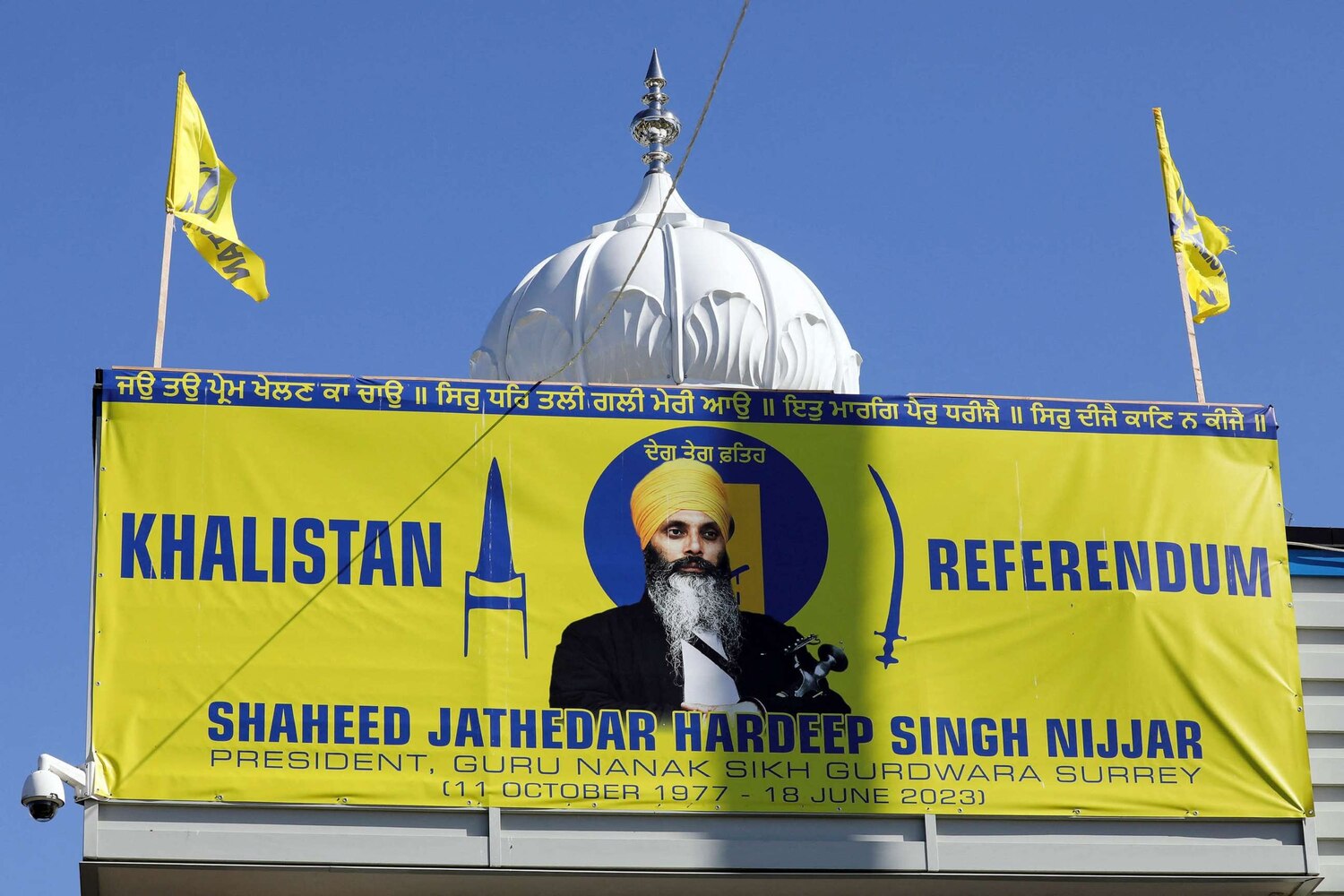The Assassination of Hardeep Singh Najjar and Resulting Tensions Between Canada and India
Canadian citizen and resident Hardeep Singh Nijjar was assassinated in British Columbia this past June. Nijjar was an ardent supporter of the Khalistan movement, an initiative that supports the formation of an independent Sikh state. Although he was considered a human rights activist by many Sikhs, the Indian government viewed him as a criminal associated with the Khalistan Tiger Force, according to the Associated Press. The government declared this force a terrorist organization in February. It had previously issued two Interpol red notices, international alerts that indicate a dangerous individual, against Nijjar after he became a Canadian citizen in 2007. Throughout the 2010s and 20s, The Indian government suspected Nijjar of conspiring against India and running a Sikh terrorist training camp in British Columbia, and thhey alerted the Canadian government directly about Nijjar’s alleged behavior in 2015. Indian Authorities subsequently filed numerous cases against Sikh activists both domestically and abroad.
In 1995, Nijjar was arrested for allegedly participating in the Insurgency of Punjab, a movement of pro-Khalistan militants that transpired in India throughout the 1980s and 90s. The Insurgency of Punjab led to the assassination of Prime Minister Indira Gandhi in 1984, sparking anti-Sikh prejudices and violent riots throughout the subcontinent. Shortly afterward, Nijjar moved to Canada, where, according to the New York Times, he was denied citizenship until 2007 due to accusations of using a fabricated identity and fraudulent passport. In Canada, Nijjar was heavily involved in Sikh activism and was viewed as a human rights activist and leader in the local Sikh community. According to the World Sikh Organization of Canada, he “often led peaceful protests against the violation of human rights actively taking place in India and in support of Khalistan.”
Nijjar’s killers coordinated an attack involving at least six men and two vehicles, and shot him a total of 34 times. Shortly after Nijjar’s death, Indian Prime Minister Narendra Modi continued to decry foreign Sikh threats while Canadian Prime Minister Justin Trudeau investigated the Indian government’s potential involvement in Nijjar’s death. Tensions subsequently built between the two countries as Canada suspected the Indian government of killing a Canadian citizen on Canadian soil. Evidence corroborated by both external and internal intelligence sources supported these accusations.
Nijjar’s murder led to a breakdown of India-Canada relations, as the two nations’ disagreement over the event led to trade restrictions between the two countries. Both countries also expelled many of each other’s diplomats and made further accusations against each other. Eventually, 41 Canadian diplomats in India were expelled, while India suspended visa services for Canadians. According to CBC News, India even accused Canada of harboring and training terrorists, and claimed that Trudeau blamed them for Nijjar’s death for personal political gains. Canada chose to remain silent on the issue to avoid further exacerbating diplomatic tensions with India. “We’re taking this extremely seriously, but we’re going to continue to engage responsibly and constructively within the government of India,” said Trudeau. According to Aljazeera, Western allies of Canada have also avoided commenting on the subject, as they want to preserve relations with India and support its role in opposing Chinese influence in Asia.
Although the Indian government denied any involvement in Nijjar’s assassination, many fear violence from and against Sikhs in India may still reignite. Some of these tensions may still stem from the insurrection of Punjab and other similar incidents. According to Aljazeera, India’s accusations of Canada’s involvement with harboring Sikh terrorists could be the product of a 1985 Air India flight from Montreal to New Delhi which was allegedly bombed by Canada-based Sikh terrorists, resulting in the deaths of all 329 passengers, mostly Indian Hindus, after which most of the accused were acquitted by Canada. According to Aljazeera, the Indian government “has also been concerned about threats made against Indian diplomats in Canada and the lack of official action against those who made the threats.” Furthermore, India’s accusations could relate to how Canada houses the largest population of Sikhs outside of India. The Indian government may view its large Sikh population as a motive for Trudeau’s denial of Sikh terrorism, in an attempt to appeal to Sikh voters and garner political support.
In conclusion, Nijjar’s murder led to a low point in India-Canada relations, as their disagreement over the true course of events led to trade restrictions between the two countries and seeded mutual distrust.

